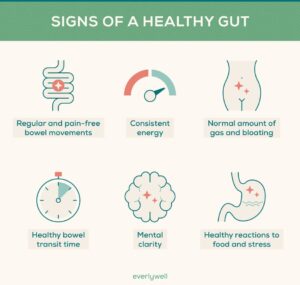Unraveling the Gut-Mind Nexus: Exploring How Gut Health Influences Mental Well being
In recent years, scientific exploration has revealed a captivating relationship between gut health and mental well-being. This intricate bond, known as the gut-brain axis, illuminates the profound impact that our digestive system can have on our mood, emotions, and overall mental health. In this comprehensive exploration, we’ll delve into the fascinating interplay between gut health and mental wellness, uncovering the profound influence of our dietary choices on our emotional landscape.
Unraveling the Gut-Brain Axis
The gut-brain axis serves as a dynamic communication network between our gut and brain, orchestrating a symphony of signals that influence various aspects of our physiology and psychology. This intricate system encompasses a complex interplay of nerves, hormones, and biochemical pathways that facilitate bidirectional communication between these two vital organs. Through channels such as the vagus nerve and neurotransmitters, our gut and brain engage in a continuous dialogue, shaping our thoughts, feelings, and behaviors.
The Central Role of Gut Microbiota
At the heart of the gut-brain axis lies the gut microbiota, a diverse ecosystem of microorganisms that inhabit our gastrointestinal tract. This vast microbial community, comprising bacteria, viruses, fungi, and other microorganisms, plays a pivotal role in digestion, nutrient absorption, and immune function. However, emerging research suggests that the gut microbiota also exerts a profound influence on our mental health, influencing mood, cognition, and behavior.

The Impact of Gut Health on Mental Wellness
- Neurotransmitter Modulation: Our gut microbiota produce a myriad of neurotransmitters, including serotonin, dopamine, and gamma-aminobutyric acid (GABA), which play critical roles in regulating mood, anxiety, and stress. Disruptions in gut health can alter the production and balance of these neurotransmitters, contributing to mood disorders such as depression and anxiety.
- Inflammation and Immune Function: A healthy gut microbiota helps maintain a balanced immune response and reduces inflammation throughout the body, including the brain. Chronic inflammation, stemming from imbalances in gut health, has been implicated in the pathogenesis of various mental health conditions, including depression, schizophrenia, and Alzheimer’s disease.
- Stress Response: The gut-brain axis plays a pivotal role in modulating our response to stress. Stressful experiences can disrupt the balance of gut microbes and compromise the integrity of the intestinal barrier, leading to increased permeability and inflammation. These changes can exacerbate symptoms of anxiety and depression, highlighting the intricate interplay between stress, gut health, and mental wellness.
- Nutrient Absorption and Brain Health: Optimal gut health is essential for proper nutrient absorption, including key nutrients that support brain health and function. Impaired gut function can hinder the absorption of essential vitamins, minerals, and fatty acids, potentially affecting cognitive function and mood regulation.
Promoting Gut Health for Enhanced Mental Wellness
Now that we understand the critical role of gut health in mental wellness, let’s explore practical strategies to support a healthy gut and cultivate emotional resilience:
- Embrace a Nutrient-Rich Diet: Prioritize whole, unprocessed foods rich in fiber, vitamins, and minerals. Incorporate plenty of fruits, vegetables, whole grains, lean proteins, and healthy fats into your meals to nourish your gut microbiota and support optimal digestion.
- Include Probiotics and Fermented Foods: Integrate probiotic-rich foods such as yogurt, kefir, sauerkraut, and kimchi into your diet. These foods contain beneficial bacteria that can help restore balance to the gut microbiota and promote gut health.
- Limit Sugary and Processed Foods: Reduce your intake of sugary snacks, refined carbohydrates, and processed foods, which can disrupt the balance of gut bacteria and contribute to inflammation.
- Manage Stress Effectively: Practice stress-reduction techniques such as mindfulness meditation, deep breathing exercises, yoga, or progressive muscle relaxation to support a healthy gut-brain axis and promote emotional well-being.
- Stay Hydrated: Drink an adequate amount of water throughout the day to support digestion and maintain proper hydration, which is essential for optimal gut function.
- Prioritize Quality Sleep: Aim for 7-9 hours of restful sleep each night to promote optimal gut health and mental wellness. Prioritize sleep hygiene practices such as maintaining a consistent sleep schedule, creating a relaxing bedtime routine, and optimizing your sleep environment.
- Stay Active: Engage in regular physical activity, as exercise has been shown to support gut health, reduce inflammation, and enhance mood.
In Conclusion
The gut-brain connection offers profound insights into the intricate relationship between gut health and mental wellness. By prioritizing a nutrient-rich diet, managing stress effectively, and adopting lifestyle habits that support optimal gut function, we can nurture our gut microbiota and cultivate emotional resilience from within. Remember, small changes in diet and lifestyle can have a profound impact on gut health and mental well-being, paving the way for a happier, healthier life.

